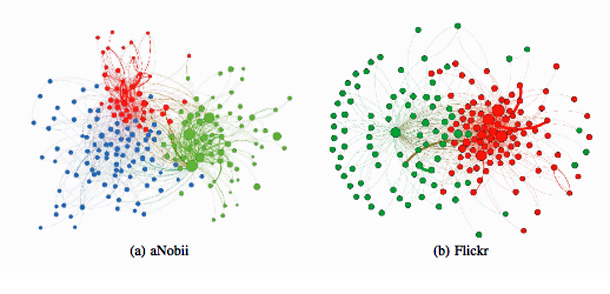
You may have put a lot of thought into your carefully constructed status update, but have you considered how, exactly, that update socially ties you to your peers? Probably not — but researches from Yahoo Labs, the University of Torino and Stanford University have. The small research team is trying to work out the “grammar of society” by categorizing types of social interactions and mapping out how conversations flow on different social networks. Using concepts sourced from theoretical computer science, the team tried to frame culture as a computational concept — using Flickr and aNobii (a community for book lovers) as models for uncovering the “source-code” of social interactions.
The data itself is an overwhelming analysis of online conversation divided into three categories: social status (an acknowledgement of a social tie like a ‘follow’), social support (affection) and messages exchanging knowledge. The group found that social status based messages were most common in short conversations, but also prefaced longer discussions that often developed into more complex mixtures of knowledge exchange and social support.
It’s a very granular look at how our social interactions and culture shape the world we live in — but there are bigger pictures to consider, too. A different group of researchers recently set a different kind of data in a computational frame: the birthplace and deathbeds of 120,000 notable human lives. Historians at the University of Texas at Dallas used these lifespans to map mankind’s development and expansion over a 2,600 year period, discovering how the cultural centers of the world evolved from small towns to international meccas and finding out that not all roads “lead to Rome” after all. Check out the in-depth analysis of social networking at the source link below, or just scroll down to see how significant world travel really is.
Comments
Via: Technology Review, The Verge, Nature
Source: Cornell University Library, Science

